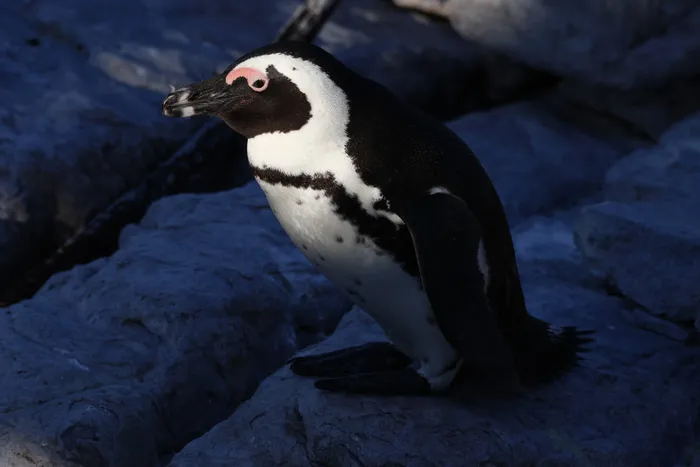African penguins face dire future

Urgent action is needed to prevent the extinction of African penguins within the next decade. Picture: Supplied
ONE of the country’s biggest tourist attractions, the African penguin, could be extinct within the next decade if drastic measures aren’t taken to protect them.
Found in South Africa and Namibia, scientists say the population could be completely wiped out by 2035, as African penguin numbers decreased by 99% in the past 120 years and from 42 500 pairs in 1991 to 10 400 pairs in 2021.
BirdLife South Africa seabird conservation programme manager Alistair McInnes said there were only 9 900 mating pairs in existence and 80% of those were in South Africa’s six penguin colonies.
“The main threat we’re especially concerned about is resource competition in certain areas, like their breeding ranges during the breeding season and before and after moult.
“African penguins mainly eat anchovy and sardine, which are under pressure from natural changes and competition with the fishing industry,” said McInnes.
BirdLife South Africa and the Southern African Foundation for the Conservation of Coastal Birds (SANCCOB) have taken the matter to court to challenge the Minister of Forestry, Fisheries and the Environment for failing to implement “meaningful closures” to purse seine fishing around penguin colonies.
McInnes said longer term closures or “no-take zones” around six of the last remaining large colonies were implemented last year, based on recommendations from an international panel of scientists which was commissioned by the department. However the closures did not align with the important foraging areas of African penguins around their breeding colonies.
“In many instances, they’re less than half the size of the actual important areas so it’s very unlikely that they’ll be effective in mitigating the resource competition. What we are advocating for is effective closures that align to their foraging areas, but are balanced in terms of the impacts on fishing. The current closures don’t reflect the trade-off mechanism that was recommended by this international panel; they predate the updated recommendations.”
McInnes said the closures would only affect purse seine fishery which targets small bait fish like sardine and anchovy.

Scientists are also using technology which has been installed at four of the six penguin colonies to monitor the birds in real time and gauge how food scarcity impacts their numbers.
McInnes said penguins were good indicators of the health of marine ecosystems because they were easier to monitor than other aquatic species that did not come back to land.
“They’re sampling our ocean all the time and if that species is going, then we know there’s a wider problem in the ocean. They give us a very good indicator of the health of our ecosystems so it’s just building awareness around the importance of African penguins. They are cute and wiggly on land like humans, but they are also very adapted to the marine environment, excellent swimmers and divers,” McInnes said.
He said African penguins were monogamous and returned to the same site and usually the same nest every year. Breeding pairs also share the load of bringing up their chicks.
“They’ve got what we call high site fidelity. They come back to the same colony every year and unless a partner has died, they’ll partner up with the same mate and reproduce there again and have the same nest in most instances.”
The six African penguin colonies in South Africa are on Dassen Island, Robben Island, Stony Point, Dyer Island, St Croix and Bird Island.
Related Topics: